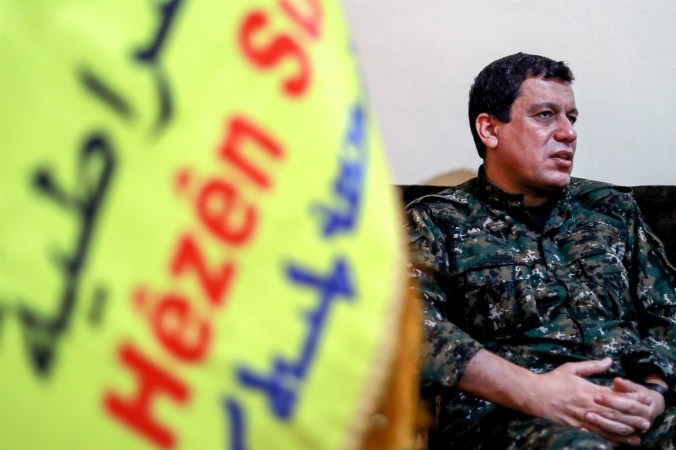 In this edition of The Interview, Fair Observer talks to Leonard Swidler, professor of Catholic thought and interreligious dialogue at Temple University, Philadelphia.
In this edition of The Interview, Fair Observer talks to Leonard Swidler, professor of Catholic thought and interreligious dialogue at Temple University, Philadelphia.
Interfaith dialogue is a necessity in our age. In a world suffering from armed conflicts, diplomatic standoffs and trade wars, cooperative and constructive interaction between people of different religious traditions is fundamental to solidifying peace and stability, and stemming racism, xenophobia, radicalization, violent extremism and terrorism.
Interreligious dialogue is about encounters — it drives respect, mutual understanding and appreciation for common values. Interfaith dialogue helps debunk the myths and eradicate the stereotypes about religion that politicians abuse to further their (often populist) agendas.
The 1893 Parliament of World Religions at the World’s Columbian Exposition in Chicago, Illinois, is often referred to as the birth of the modern interfaith movement, even though interfaith dialogue has ancient roots. There have been notable examples of collaboration between the devotees of different religions in the far past. In the 16th century, the emperor Akbar the Great encouraged tolerance in Mughal India where people of various faith backgrounds, including Islam, Hinduism, Sikhism and Christianity, lived.
It’s also narrated in the Bible that Cyrus the Great, the king of Persia, allowed the Jews to return to their homeland and ordered a temple to be built in Jerusalem upon a decree from God in the first year of his reign. It is for this reason that Cyrus is talked of favorably in the Bible and loved by the Jews.
While such plagues as Islamophobia and anti-Semitism continue to spread intolerance and mar relations between Muslims, Jews and Christians, faith leaders have a crucial responsibility to preach engagement, interaction and peaceful dialogue among their followers to prevent these social gaps from widening further.
Leonard Swidler is professor of Catholic thought and interreligious dialogue at Temple University, Philadelphia. He is the co-founder and director of Global Dialogue Institute and is a major figure in the scholarly study of interfaith dialogue. In this edition of The Interview, Fair Observer talks to Swidler about interreligious dialogue and the major obstacles blocking successful cooperation between the leaders and adherents of the world’s many faiths.
The text has been lightly edited for clarity.
Kourosh Ziabari: What are the prerequisites of successful interfaith dialogue? What should be done before religious leaders sit together to discuss their differences and shared values?
Leonard Swidler: The essence of interreligious dialogue is to learn from the dialogue partner so we can grow — and a growth of knowledge, no matter how slight, is a growth in me, and hence a change in me. My dialogue partner is not me, and so necessarily sees reality from his or her family, gender, wealth and religious perspective, which will be the same or similar to mine, and necessarily different from mine. That combination of the livening person is what I want to learn about in dialogue so I can live more fully on the basis of the always expanding, deepening understanding of reality. In brief, as in a mantra I composed, “Nobody knows everything about anything — therefore, dialogue!”
FULL ARTICLE FROM FAIROBSERVER.COM
 NORTHERN SYRIA — ISIS leader Abu Bakr al-Baghdadi was betrayed by a member of his inner circle who helped lead American troops to his compound in Northern Syria.
NORTHERN SYRIA — ISIS leader Abu Bakr al-Baghdadi was betrayed by a member of his inner circle who helped lead American troops to his compound in Northern Syria.
 VATICAN CITY (CNS) — Representatives from the Catholic and Orthodox churches and the Muslim and Jewish faiths signed a joint declaration at the Vatican reaffirming each religion’s clear opposition to euthanasia and physician-assisted suicide.
VATICAN CITY (CNS) — Representatives from the Catholic and Orthodox churches and the Muslim and Jewish faiths signed a joint declaration at the Vatican reaffirming each religion’s clear opposition to euthanasia and physician-assisted suicide. In this edition of The Interview, Fair Observer talks to Leonard Swidler, professor of Catholic thought and interreligious dialogue at Temple University, Philadelphia.
In this edition of The Interview, Fair Observer talks to Leonard Swidler, professor of Catholic thought and interreligious dialogue at Temple University, Philadelphia. Rep. Ilhan Omar’s views on American Jews and their support for the nation of Israel sadly contribute to a major misunderstanding of the Muslim faith for many Americans. She has been condemned for not putting behind her a deep-seated anti-Semitism.
Rep. Ilhan Omar’s views on American Jews and their support for the nation of Israel sadly contribute to a major misunderstanding of the Muslim faith for many Americans. She has been condemned for not putting behind her a deep-seated anti-Semitism. In a world where extremism has painted religion as a catalyst for bloodshed, two Nigerian men of different faiths have proven that reaching common ground is possible – despite fundamental differences.
In a world where extremism has painted religion as a catalyst for bloodshed, two Nigerian men of different faiths have proven that reaching common ground is possible – despite fundamental differences. After the deadliest anti-Semitic attack in American history, interfaith ties, initiative and compassion led to organization and solidarity others can model.
After the deadliest anti-Semitic attack in American history, interfaith ties, initiative and compassion led to organization and solidarity others can model. True acts of sportsmanship are always a delight to see. And a video shared by ESPN that captured a beautiful moment from a women’s soccer match is no exception.
True acts of sportsmanship are always a delight to see. And a video shared by ESPN that captured a beautiful moment from a women’s soccer match is no exception. The emboldening of bigotry and hatred is just one of the toxic facets that the current president of the United States campaigns upon. One of the targets of this hate is the Muslim community. From his earlier days of attempting to “slander” Barack Obama by claiming he was secretly Muslim, to his “
The emboldening of bigotry and hatred is just one of the toxic facets that the current president of the United States campaigns upon. One of the targets of this hate is the Muslim community. From his earlier days of attempting to “slander” Barack Obama by claiming he was secretly Muslim, to his “ LAGOS, NIGERIA — When Fatima Isiaka, a religious Muslim teacher, asked the cab driver to drop her off at St. Kizito Catholic Church in Abuja, the driver thought she was lost. “The cab man that took me to the church, a Muslim, was surprised to see me enter a church,” Isiaka recalled of the summer 2014 meeting. “He told me, ‘This is a church!’ I said, ‘Yes, I know.’ ”
LAGOS, NIGERIA — When Fatima Isiaka, a religious Muslim teacher, asked the cab driver to drop her off at St. Kizito Catholic Church in Abuja, the driver thought she was lost. “The cab man that took me to the church, a Muslim, was surprised to see me enter a church,” Isiaka recalled of the summer 2014 meeting. “He told me, ‘This is a church!’ I said, ‘Yes, I know.’ ”